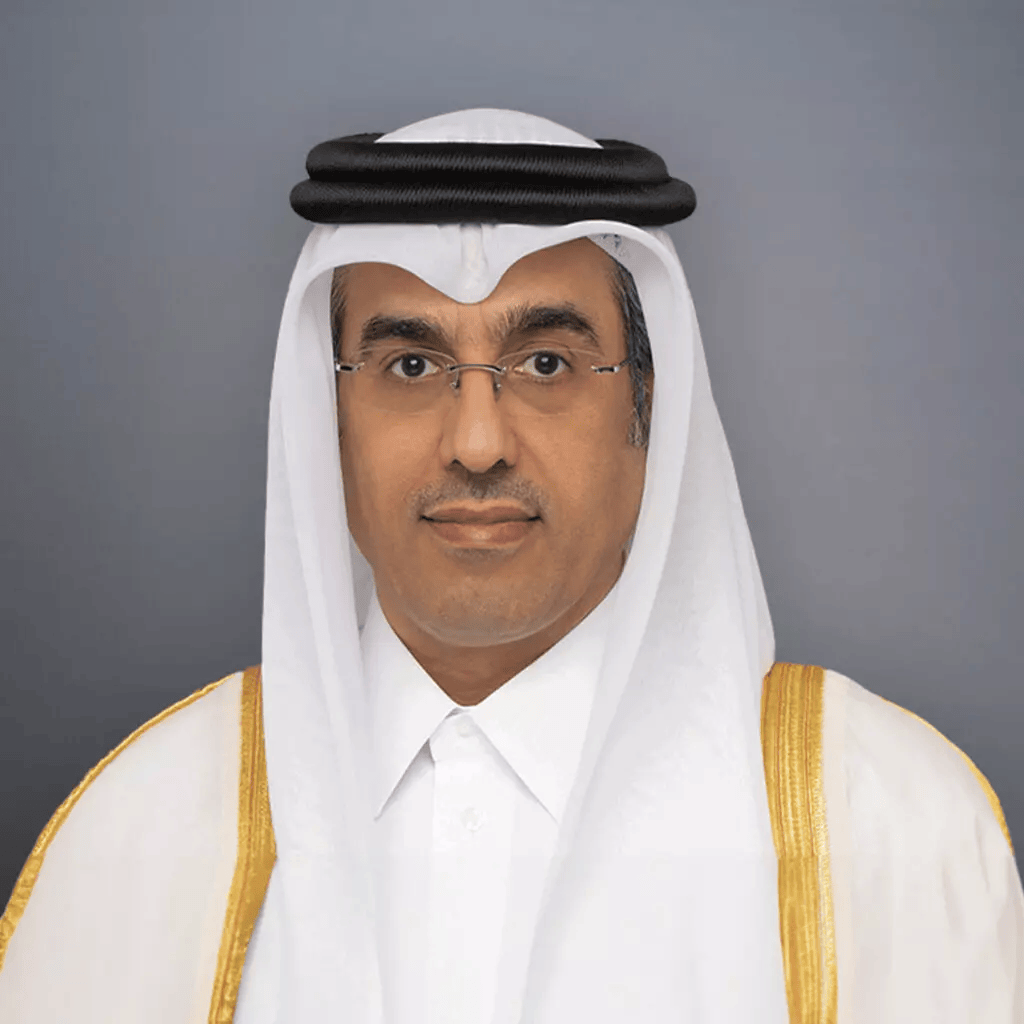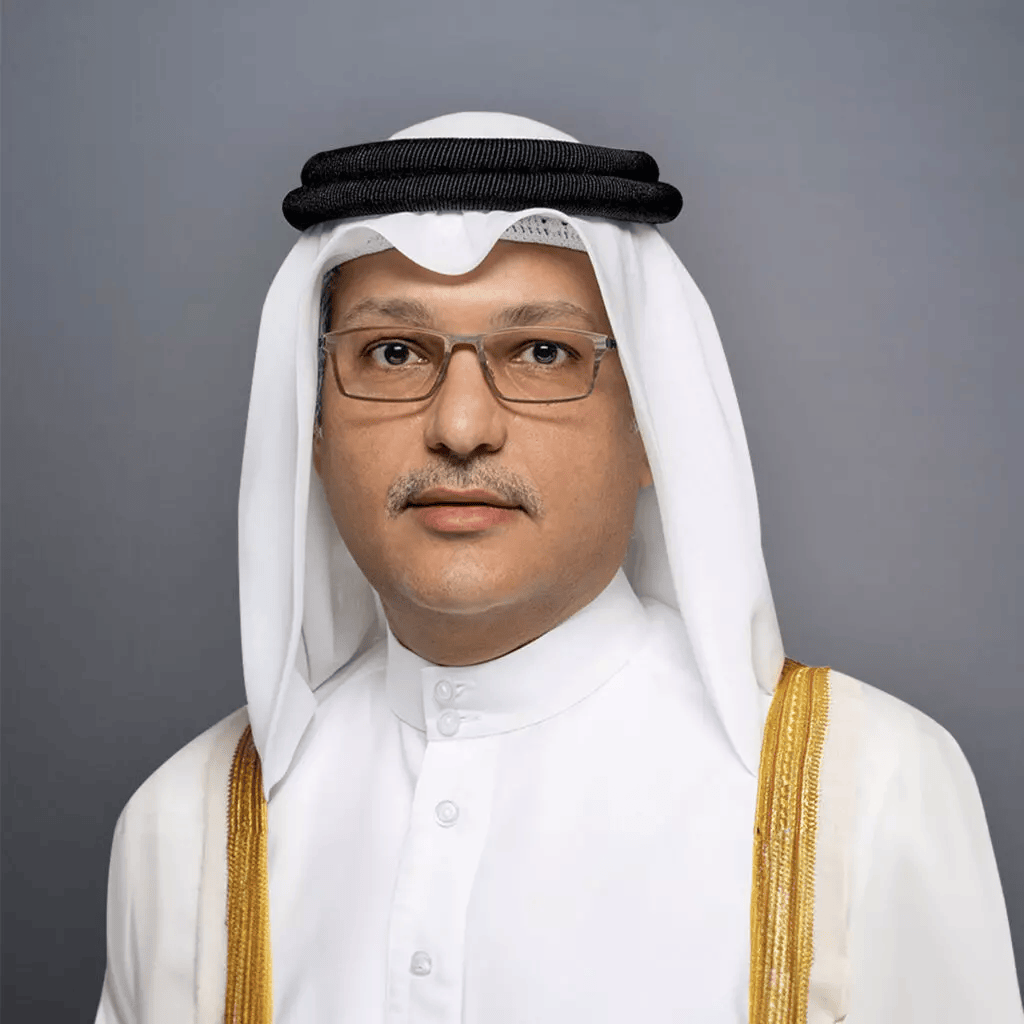His Excellency Mr Soltan bin Saad Al-Muraikhi was appointed State Minister for Foreign Affairs in June 2016 and a member of the Cabinet in January 2024. Before this, His Excellency held the position of Assistant to the Minister of Foreign Affairs, which began in March 2016.
His Excellency previously served as Ambassador Plenipotentiary and Extraordinary at the Embassy of the State of Qatar in Athens from December 2013 to December 2016. He also served as Ambassador Plenipotentiary and Extraordinary at the Embassy of the State of Qatar in Rome from November 2005 to November 2013. During the same period, he was the Permanent Representative of the State of Qatar to the UN in Rome. He was awarded the Merit of Grand Officer twice by the President of the Italian Republic on 16 November 2007 and 6 February 2014 during his appointment.
From September 2000 to September 2005, His Excellency was delegated to the Office of His Highness the Heir Apparent at the Amiri Diwan.
His Excellency held positions as the Consul General at the Consulate of the State of Qatar in Houston from August 1997 to August 2000 and the Second Secretary at the Embassy of the State of Qatar in Washington from August 1994 to August 1997.
He additionally worked as the Director of the Office of the Ministry’s Undersecretaryship from 1990 to 1994 following his role as Assistant of the Director of the Minister of State of Foreign Affairs from May 1988 to January 1990. His journey as a representative of the State of Qatar began in July 1984 with his first appointment as the Third Secretary of the Ministry of Foreign Affairs.
His Excellency the State Minister for Foreign Affairs has a bachelor’s degree in political science.
His Excellency Sheikh Saoud bin Abdulrahman bin Hassan bin Ali Al Thani was appointed Deputy Prime Minister and Minister of State for Defence Affairs in November 2024.
His Excellency the Deputy Prime Minister and Minister of State for Defence Affairs previously served as Chief of the Amiri Diwan from October 2020 to November 2024. He also served as Assistant to the Chief of the Amiri Diwan from 2019 – 2020.
Prior to this position, his Excellency joined the Qatari Armed Forces and he rose through military ranks until he reached the rank of Major Engineer. His Excellency then joined the Qatar Olympic Committee, serving as Assistant Secretary-General, and then assumed the position of Secretary-General. His Excellency also presided over the presidency of the Qatar Basketball Federation.
His Excellency served as Ambassador of the State of Qatar to the Federal Republic of Germany and Non-Resident Ambassador to the Czech Republic.
His Excellency has held leadership positions in numerous regional and international sports committees, and received several awards, including the Recognition Award for Personalities That Served Sports in Qatar in 2005 and the Sports Personality Award in 2007.
His Excellency the Deputy Prime Minister and Minister of State for Defence Affairs holds a BSc in Electrical Engineering from New Mexico State University, USA and obtained a master’s degree in Sports Management from the University of Lyon, France. His Excellency was awarded an honorary doctorate from the National Sports Academy in Bulgaria.
Her Excellency Buthaina bint Ali Al Jabr Al Nuaimi was appointed Minister of Social Development and Family in November 2024. Her Excellency the Minister of Social Development and Family previously held the position of Minister of Education and Higher Education from October 2021 to November 2024.
Prior to this position, Her Excellency was the President of Pre-University Education at Qatar Foundation from 2016 to 2021. At the beginning of her career, she was a teacher, a coordinator, a head of department then a vice principal at the Ministry of Education schools. Her Excellency joined Qatar Foundation in 2006 and worked in several leadership positions in the Pre-K-12 Education sector. She was a founding member of multiple schools under the Qatar Foundation umbrella, and served in several national committees in the field of education.
Her Excellency the Minister of Social Development and Family holds a bachelor’s degree in Arts and Education from Qatar University and an EMBA from HEC Paris in Qatar.
His Excellency Sheikh Hamad bin Khalifa bin Ahmed Al Thani was appointed as Minister of Sports and Youth in January 2024.
His Excellency the Minister of Sports and Youth currently holds several positions, including board member of the Supreme Committee for Delivery and Legacy AFC Executive Committee member and FIFA Council member, positions he has held since 2011 and 2023 respectively. His Excellency the Minister of Sports and Youth has served as the President of the Arab Gulf Cup Football Federation since 2012 and as Chairman of the 2023 AFC Asian Cup Local Organising Committee.
His Excellency’s career in sports began as a football player with Al Tadamon SC and with the Qatar Youth Football Team. His Excellency also joined Al Rayyan SC. Additionally, His Excellency was Director of Al Rayyan FC and Director of Planning at the QOC. His Excellency was a member of the Qatar Football Association (QFA) Board of Directors, and Vice President. As president of the QFA, His Excellency served on the FIFA Member Associations Committee. In 2007, he was appointed as Chairman of the AFC Asian Cup 2011™ Local Organising Committee.
Following that, His Excellency served as a member of the provisional AFC Professional Football Committee from 2008 to 2011 and as President of the Qatar Stars League between 2008 and 2023. His Excellency also served as an advisor to the President of the Qatar Olympic Committee and Chairman of the FIFA World Cup Qatar 2022™ Local Organising Committee.
His Excellency the Minister of Sports and Youth holds a bachelor’s degree in Sports Administration from Qatar University.
His Excellency Mr. Ibrahim Ali Al Mohannadi was appointed Minister of Justice and Minister of State for Cabinet Affairs in January 2024.
Before assuming this position, His Excellency the Minister of Justice and Minister of State for Cabinet Affairs served as the Director of the Legal Affairs Department in the Amiri Diwan with ministerial rank from 2013 to 2024.
From 2004 to 2005, His Excellency held the rank of second lieutenant of the armed forces.
His Excellency the Minister of Justice and Minister of State for Cabinet Affairs has a bachelor’s degree in law with honours from Durham University and a master’s degree in law with honours from Swansea University.
His Excellency Abdullah bin Hamad bin Abdullah Al Attiya was appointed Minister of Municipality in January 2024.
Since 2018, His Excellency the Minister of Municipality has been Vice Chairman of the Barwa Real Estate Company Board of Directors, where he was promoted to Chairman in 2023. In 2021, His Excellency was appointed as Deputy Chairman of Katara Hospitality, where he also served on the board.
In 2022, he joined the Board of Directors of the United Development Company and the Qatar Free Zones Authority. His Excellency is also Vice President of the Board of Directors at Al Saad Sports Club.
In January 2017, His Excellency joined the Board of the Qatari Diar Real Estate Investment Company, later becoming CEO in July 2018. During the same year, His Excellency became a member of the Board of Directors at VINCI SA.
From 2015 to 2018, His Excellency held several positions at the Public Works Authority (Ashghal), including Director of the Technical Office, and Vice President. He was then appointed as Vice Chairman of the Qatar Primary Materials Company, where he was voted as Acting CEO by the Board, until early May 2018.
In 2014, His Excellency became Acting Executive Director of the Programme Management Office of Qatar’s Supreme Committee for Delivery & Legacy.
His Excellency began his career as an Operations Engineer at Qatar Petroleum until 2011, later becoming a Project Engineer and then an Onshore Development and Planning Manager at RasGas in 2012.
His Excellency the Minister of Municipality holds a master’s degree in Chemical Engineering from the University of Nottingham and a bachelor’s degree in Mechanical Engineering from Cardiff University.
Her Excellency Lolwah Rashid Al-Khater was appointed Minister of Education and Higher Education in November 2024. Her Excellency previously held the position of Minister of State for International Cooperation from March 2023 to November 2024.
Her Excellency the Minister of Education and Higher Education previously served as the Spokesperson of the Ministry of Foreign Affairs of the State of Qatar from 2017 and as Assistant Minister of Foreign Affairs from 2019.
Prior to this position, Her Excellency joined the Ministry of Foreign Affairs as Minister Plenipotentiary. She also served as the Director of Planning and Quality at the Qatar Tourism Authority and as a Research Project Manager at Qatar Foundation.
Her Excellency was appointed as Media City Board Member in 2019. She is also the Executive Director of Doha Forum and Vice Chairman of the Qatar Fund for Development.
Her Excellency is also a Member of the Board of Trustees at the College of Islamic Studies of Hamad Bin Khalifa University, a Member of the Board of Trustees at Georgetown University in Qatar, and a Member of the Board of Trustees of Qatar Museums.
Her Excellency worked as a part-time lecturer at Doha Institute for Graduate Studies and is a Research Associate at the Oxford Gulf and Arabian Peninsula Forum at St. Antony’s College at the University of Oxford. She is also a board member at The Institute for Palestine Studies.
Her Excellency the Minister of Education and Higher Education holds an MSc in Computing and an MA in Public Policy.
His Excellency Mansoor bin Ebrahim bin Saad Al Mahmoud was appointed Minister of Public Health in November 2024.
His Excellency the Minister of Public Health has previously held several positions, including CEO of the Qatar Investment Authority from September 2018 to November 2024.
His Excellency has also previously served as CEO of Qatar Museums, CEO of Qatar Development Bank (QDB) and Director of the Office of His Excellency the Prime Minister and Minister of Foreign Affairs for Investment Affairs.
His Excellency currently serves as the Vice Chairman of the Board of Directors of Qatar Airways, Chairman of the Board of Directors of Katara Hospitality, and a member of the Board of Trustees of Hamad Bin Khalifa University (HBKU), the Qatar Research, Development and Innovation Council (QRDI) and the Board of Directors of Qatar National Bank (QNB).
His Excellency the Minister of Public Health holds a bachelor’s degree in business administration and finance from George Washington University, USA.
His Excellency Sheikh Faisal bin Thani Al Thani was appointed Minister of Commerce and Industry in November 2024.
His Excellency the Minister of Commerce and Industry holds several other roles, including as a member of the Supreme Council for Economic Affairs and Investment, the National Planning Council, and the Supreme Committee for the Preparation of the Third National Development Strategy.
Additionally, His Excellency is the Chairman of the Qatar Financial Centre Authority, Chairman of the Advisory Board for the Investment Promotion Agency (Invest Qatar), Chairman of Ooredoo Group, and Chairman of Lesha Bank. His Excellency is also a member of the Board of Directors of Qatar Airways Group and Qatar Insurance Company.
His Excellency previously served as the Chief Investment Officer for Asia and Africa at the Qatar Investment Authority, and has held other leadership roles, including Chief Investment Officer at the Qatar Foundation Endowment from 2014 to 2017. His Excellency also played a key role in managing investments at the Qatar Central Bank from 2010 to 2014.
His Excellency served as Chairman of the Qatar Banking Studies and Business Administration Secondary School and as Vice Chairman of Vodafone Qatar from 2013 to 2016. His Excellency has also been a board member of organizations including Ahlibank, Qatari Diar Real Estate Investment Company, Nakilat, Bharti Airtel, and Siemens Qatar.
His Excellency the Minister of Commerce and Industry holds a bachelor’s degree in Business Administration from Marymount University USA, and an EMBA from HEC Paris, France.
His Excellency Sheikh Mohammed bin Abdulla bin Mohammed Al Thani was appointed Minister of Transport in November 2024.
His Excellency the Minister of Transport served as a senior officer at the Qatar Armed Forces (General Headquarters). His Excellency held several leadership and executive positions in Ooredoo Group, including Deputy Chief Executive Officer of Ooredoo Group and Chief Executive Officer of Ooredoo Qatar.
His Excellency’s position also included being the Vice Chairman of the Board of Directors of Asiacell Iraq, President Commissioner of Indosat Ooredoo, Board Member of both INJAZ Qatar and United Networks and member of the Qatar Association of Certified Public Accountants.
His Excellency the Minister of Transport holds an MSc in Accounting and Finance from Cardiff University, Wales, and a BA in Economics and Administrative Science, majored in accounting, from Qatar University. He also holds certifications from the Leadership Program for Executives from the Qatar Leadership Centre, including courses by Harvard Business School and HEC Paris, and from the Intensive Executive Breakthrough Program by Egon Zehnder and Mobius Executive Leadership.
His Excellency Sheikh Khalifa bin Hamad bin Khalifa Al Thani was appointed as Minister of Interior in March 2023.
His Excellency previously served as Commander of Security Operations for the FIFA World Cup Qatar 2022™. He was also President of the National Risk Management Team. In 2021, His Excellency assumed the position of Assistant Chairman of Tournament Operations and Safety Committee.
In 2021, His Excellency led the operations of the FIFA Arab Cup and the Formula 1 World Championship. The same year, he was appointed as a member of the supervisory committee for Qatar’s first Shura Council elections.
In 2020, he was appointed as a member of the National Security Council, and a member of the Steering Committee of the Supreme Committee for Delivery and Legacy (SC).
Since 2015, His Excellency has also served as a Captain in the ‘Lefdawiya’ special unit, affiliated to the ‘Lekhwiya’ Internal Security Force – which he first joined as part of a constituent training course for officers graduating from civil universities. He obtained a first class with Excellence.
From 2015 to 2018, he participated in approximately 13 military training courses held in Qatar, the US and France, covering fields such as combating terrorism, sniping, urban combat, discarding and disposal of explosives, problem-solving strategies, exceptional decision-making, “Al Saiqa”, freefall parachuting, operational parachuting, diving, negotiations during terrorist attacks, VIP protection, and riot control.
His Excellency the Minister of Interior is a graduate of the US-based University of Southern California, from which he received a BA in Public Policy in 2015 and a MA in General Diplomacy in 2017. A native Arabic speaker, His Excellency is also fluent in English.
His Excellency Ali bin Ahmed Al Kuwari was appointed Minister of Finance in October 2021.
Prior to being appointed Minister of Finance, His Excellency held the position of Minister of Commerce and Industry from November 2018 to October 2021. From July 2013 to November 2018, he held the role of Chief Executive Officer of the Qatar National Bank.
HE the Minister of Finance earned his bachelor’s degree in Math and Computer Science from Eastern Washington University and holds a master’s degree in Management Information System from Seattle Pacific University.
His Excellency Dr Abdulla bin Abdulaziz bin Turki Al Subaie was appointed Minister of Municipality in October 2021. He was initially appointed Minister of Municipality and Environment in November 2018.
In January 2017, he was appointed Chief Executive Officer of Qatar Rail. In addition to his duties in the Government of Qatar, HE the Minister of Municipality serves as the Managing Director and Chairman of the Executive Committee of Qatar Railways Company, Qatar Rail, having held these positions since March 2011. He was previously the Group Chief Executive Officer of Barwa, Qatar’s leading real estate development and investment holding group from April 2011 until May 2014. Prior to joining Barwa, he was the Chief Executive Officer of Smeet, an affiliate of Qatari Diar Group, serving the company since its formation in 2008 until March 2011. His Excellency the Minister of Municipality has held various leadership and senior project management positions from 1996 to 2008 with the Qatar General Electricity & Water Corporation (Kahramaa), where he managed large infrastructure projects.
HE the Minister of Municipality holds a PhD in Administration and received a master’s degree in Business Administration in 2006, and a bachelor’s degree in Electrical Engineering from Qatar
His Excellency Eng. Saad bin Sherida Al Kaabi was appointed Minister of State for Energy Affairs in November 2018.
Before his official position, His Excellency the Minister of State for Energy Affairs worked as the Managing Director, President and Chief Executive Officer of Qatar Energy. Between 2006 and 2014, he was the Director of Qatar Energy’s Oil & Gas Ventures Directorate. Between 1991 and 2006, he was part of Qatar Energy’s Reservoir & Field Development Department, where he later became the Manager of Gas Development, responsible for North Field management and development.
HE the Minister of State for Energy Affairs has a bachelor’s degree in Energy and Gas Engineering from Pennsylvania State University in the USA.
His Excellency Ghanem bin Shaheen bin Ghanem Al Ghanim was appointed Minister of Endowments (Awqaf) and Islamic Affairs in October 2021.
His Excellency the Minister of Endowments and Islamic Affairs has held several positions related to Qatar’s Armed Forces. He was promoted to Lieutenant General in Qatar’s Armed Forces in 2016, having become the Chief of Staff of Qatar Armed Forces in 2013. He served as Assistant Chief of Staff for Operations and Training at the General Command of the Armed Forces from 1999 and held the position of Director of Air Operations until 1997. He has held a variety of other positions in the Qatar Armed Forces including Commander of the Air Operations Centre, Commander of the Air Defence Command, Operations Commander of Doha Air Base and Commander of the 7th Squadron of the Mirage-F1.
HE the Minister of Endowments and Islamic Affairs received a bachelor’s degree in Aeronautics in 1978. He previously graduated from Royal Academy Sandhurst in the UK, in 1975. He also obtained a fellowship from the Pakistani Air War College.
His Excellency Dr Ali bin Saeed bin Smaikh Al Marri was appointed Minister of Labour in October 2021.
HE the Minister of Labour was elected Chairman of the Asia-Pacific Forum for National Human Rights Institutions from 2013 – 2015 and Chairman of the Permanent Arab Commission for Human Rights at the Arab League in 2012. He previously chaired the Sub-Committee on Accreditation from 2012 – 2015, which specialises in reviewing and accrediting national human rights institutions in compliance with the Paris Principles. He has worked on various flagship initiatives, including establishing the Arab Network for National Human Rights Institutions and the Asia-Pacific Forum for National Human Rights Institutions.
His Excellency the Minister of Labour previously served as the President of the National Human Rights Committee of the State of Qatar, beginning in 2009. He was also the Acting Chairperson and the Secretary General of the Global Alliance of National Human Rights Institution (GANHRI) and the President of the Arab Network for National Human Rights Institutions.
HE the Minister of Labour holds a PhD of Philosophy in Political Science, a master’s degree in Political Science and a bachelor’s degree in Political Science.
His Excellency Mohammed bin Ali bin Mohammed Al Mannai was appointed Minister of Communications and Information Technology in October 2021.
His Excellency the Minister of Communications and Information Technology currently serves as the President of the Communications Regulatory Authority (CRA), Vice Chairman of the Board of Directors at Qatar Free Zones Authority, Member of the Board of Trustees of Qatar University, and Member of the Board of Directors of Es’hailSat, the Qatar Satellite Company and a Member of the Board of Directors of Al Jazeera Media Network.
Prior to his official position, His Excellency the Minister of Communications and Information Technology has held several positions related to the Information and Communications Technology (ICT) sector. He has served as the Chief Executive Officer of the Qatar Broadband Network Company (QNBN), as well as having served in senior positions in the telecommunications company Ooredoo Qatar, formerly known as Qtel.
HE the Minister of Communications and Information Technology received a bachelor’s degree in Physics from the American University in Cairo. He also holds professional certificates in management and leadership from several institutions, including the International Institute for Management Development (IMD), the INSEAD Business School and the Carnegie Bush Institute.
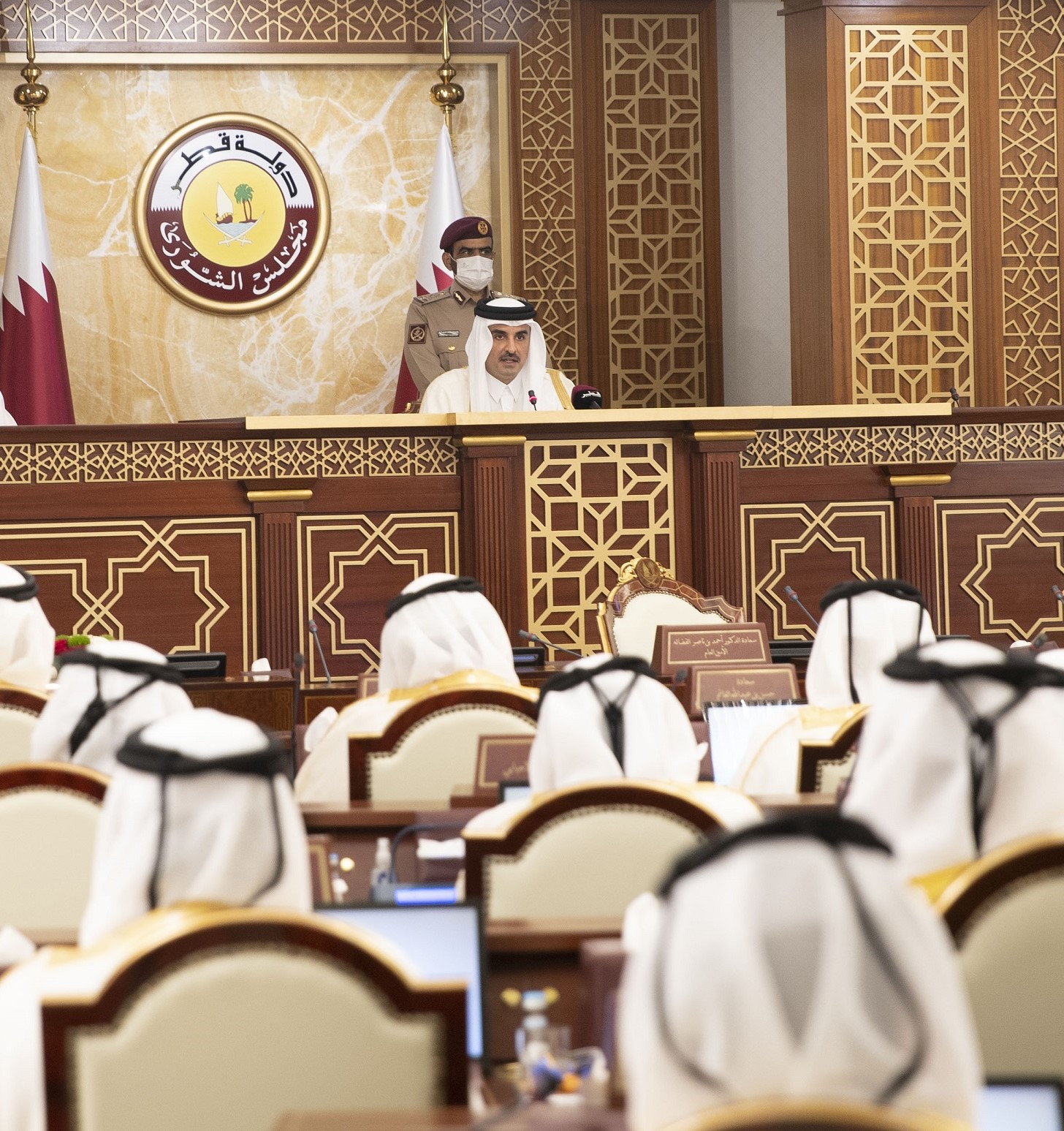
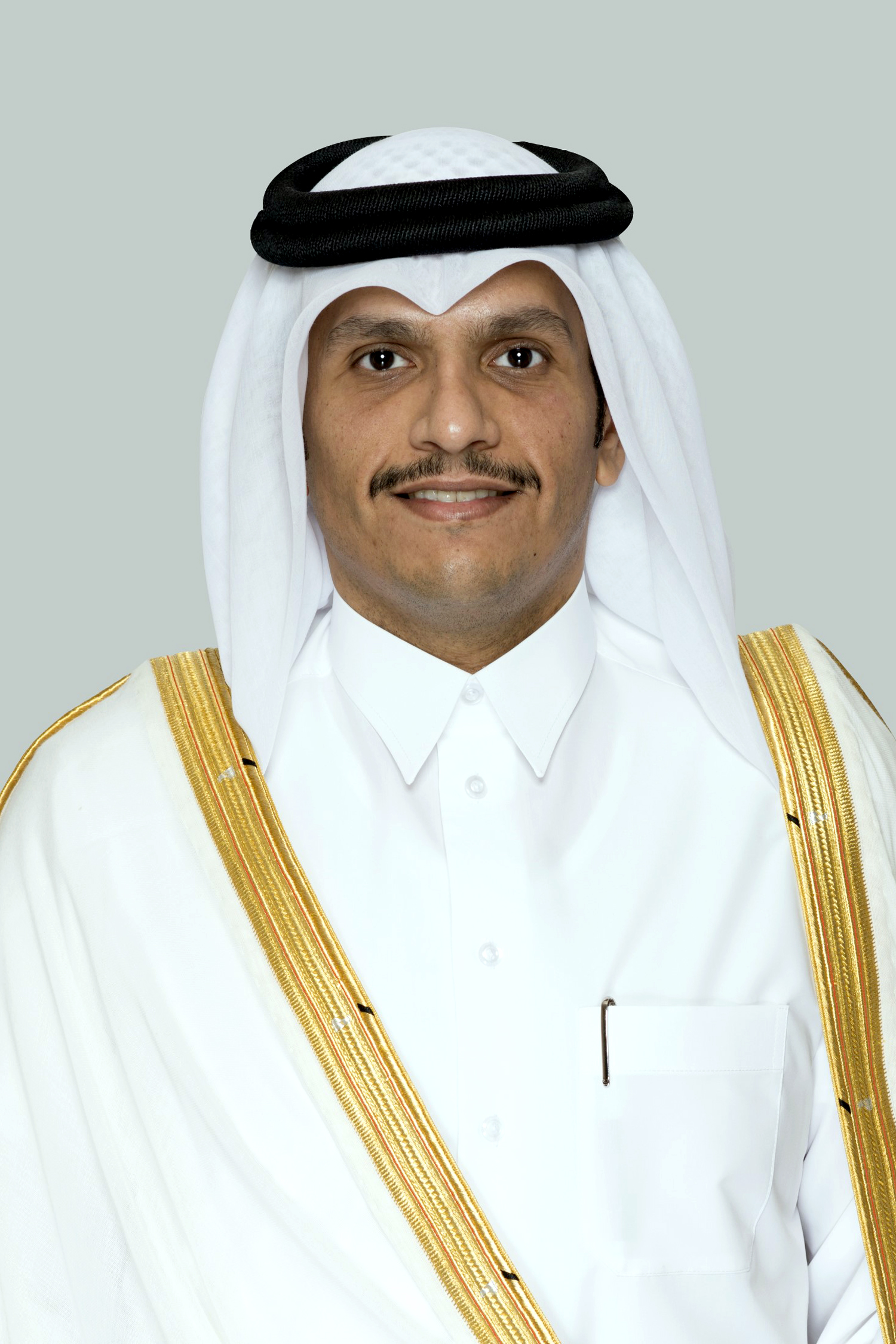

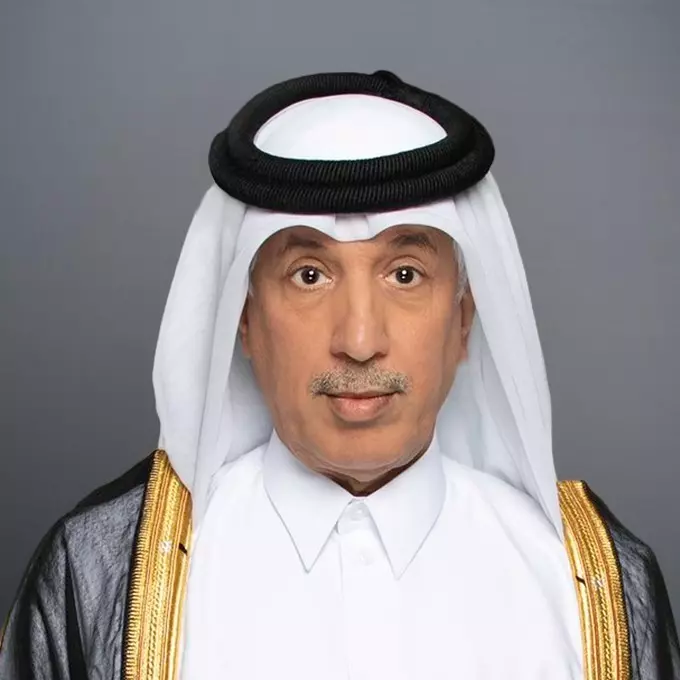
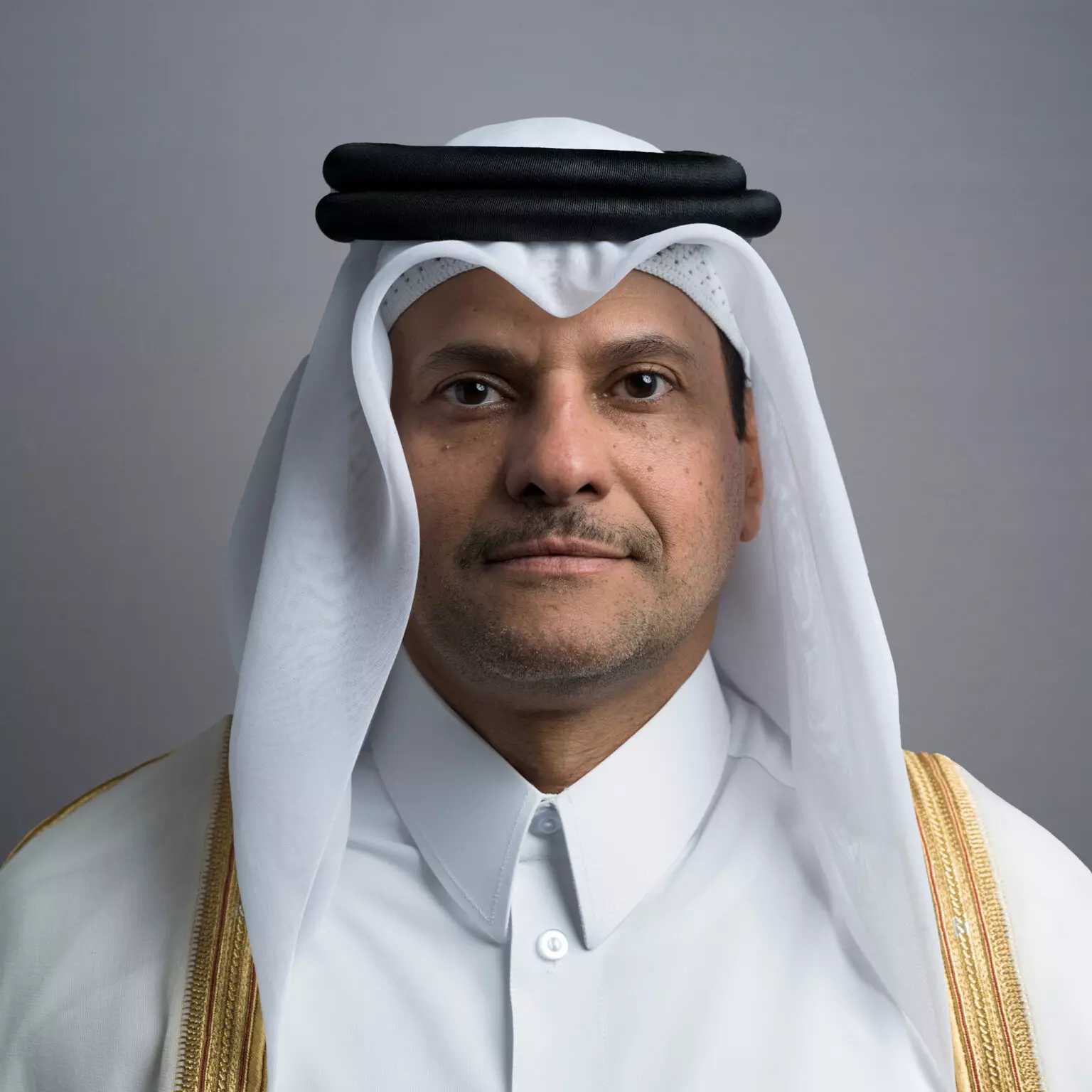
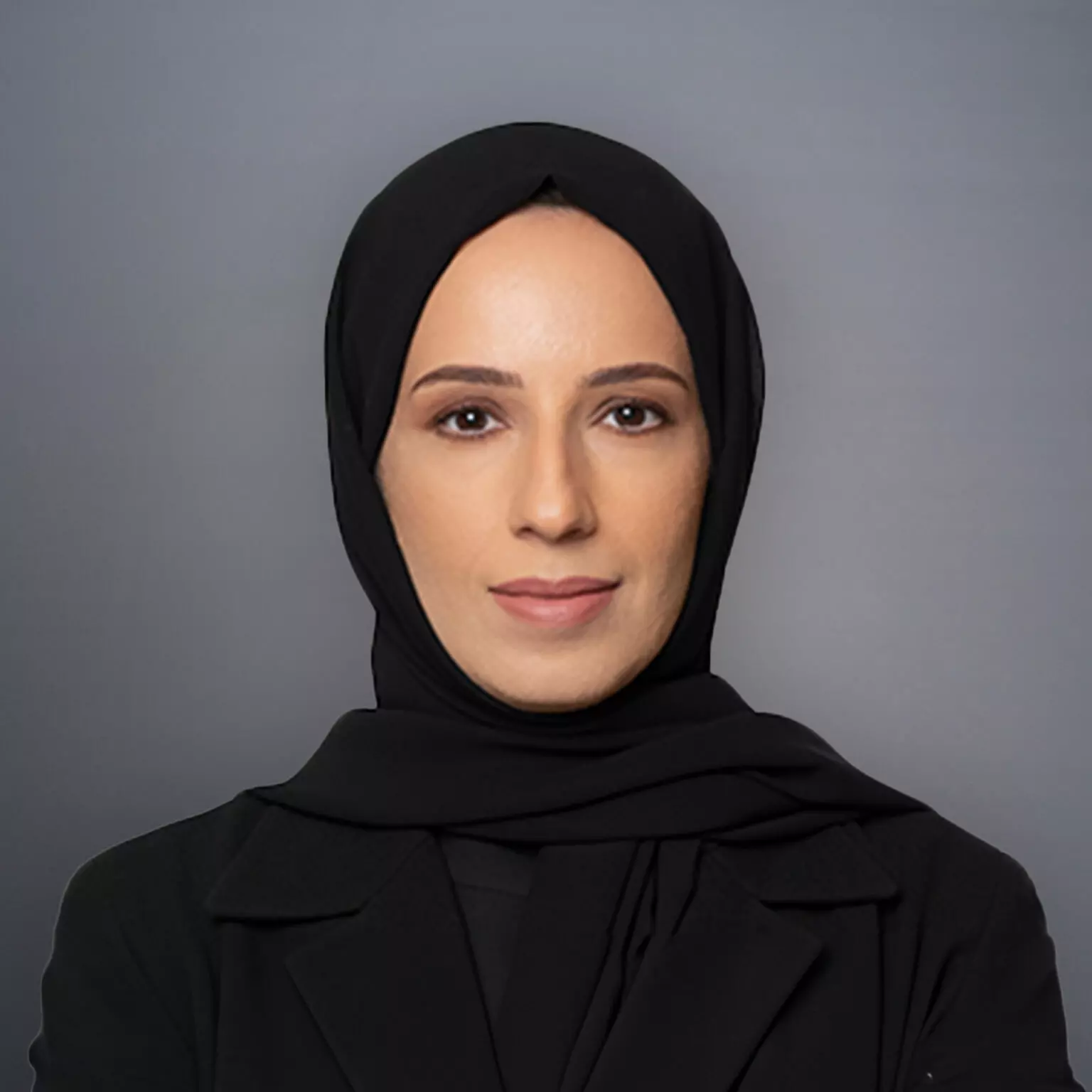
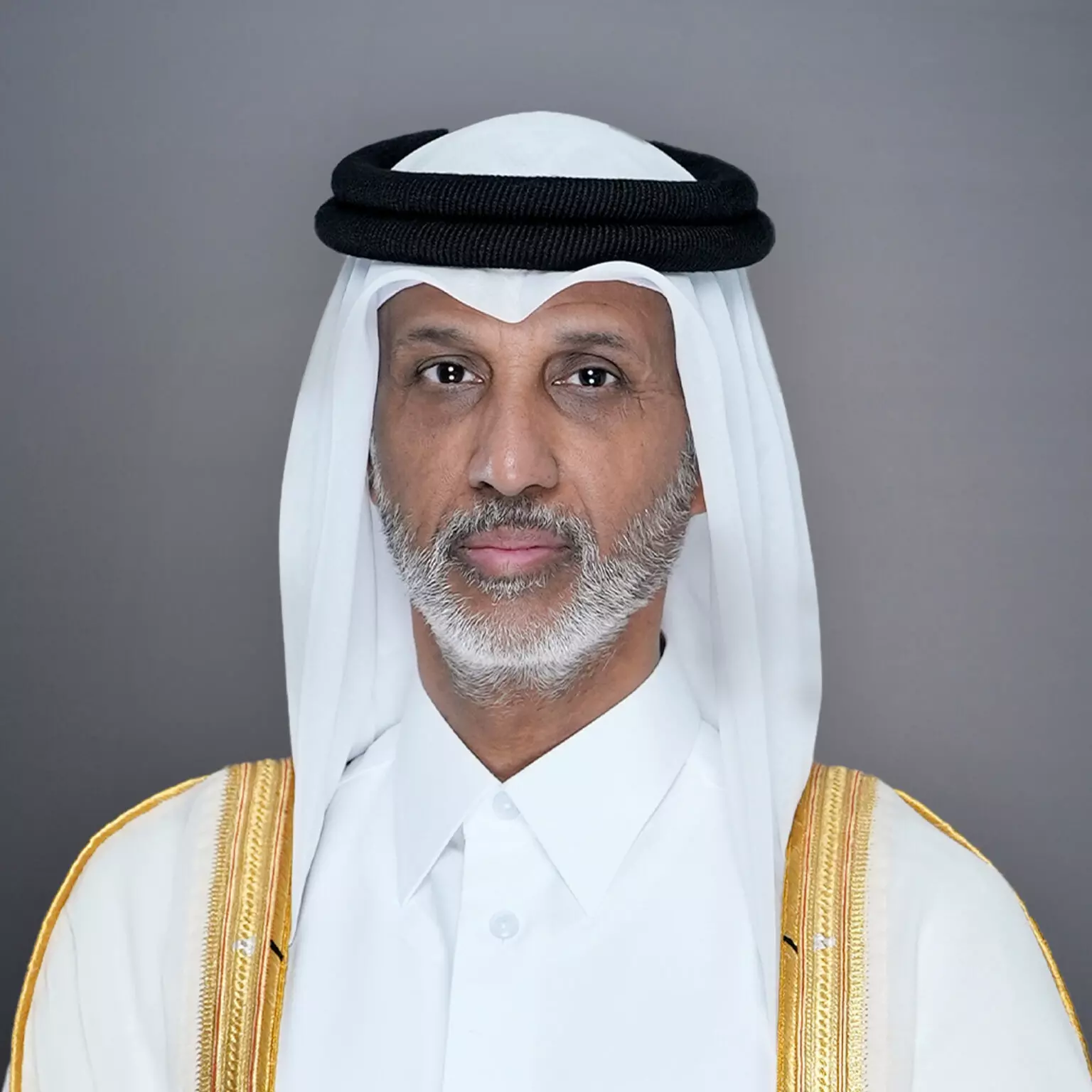
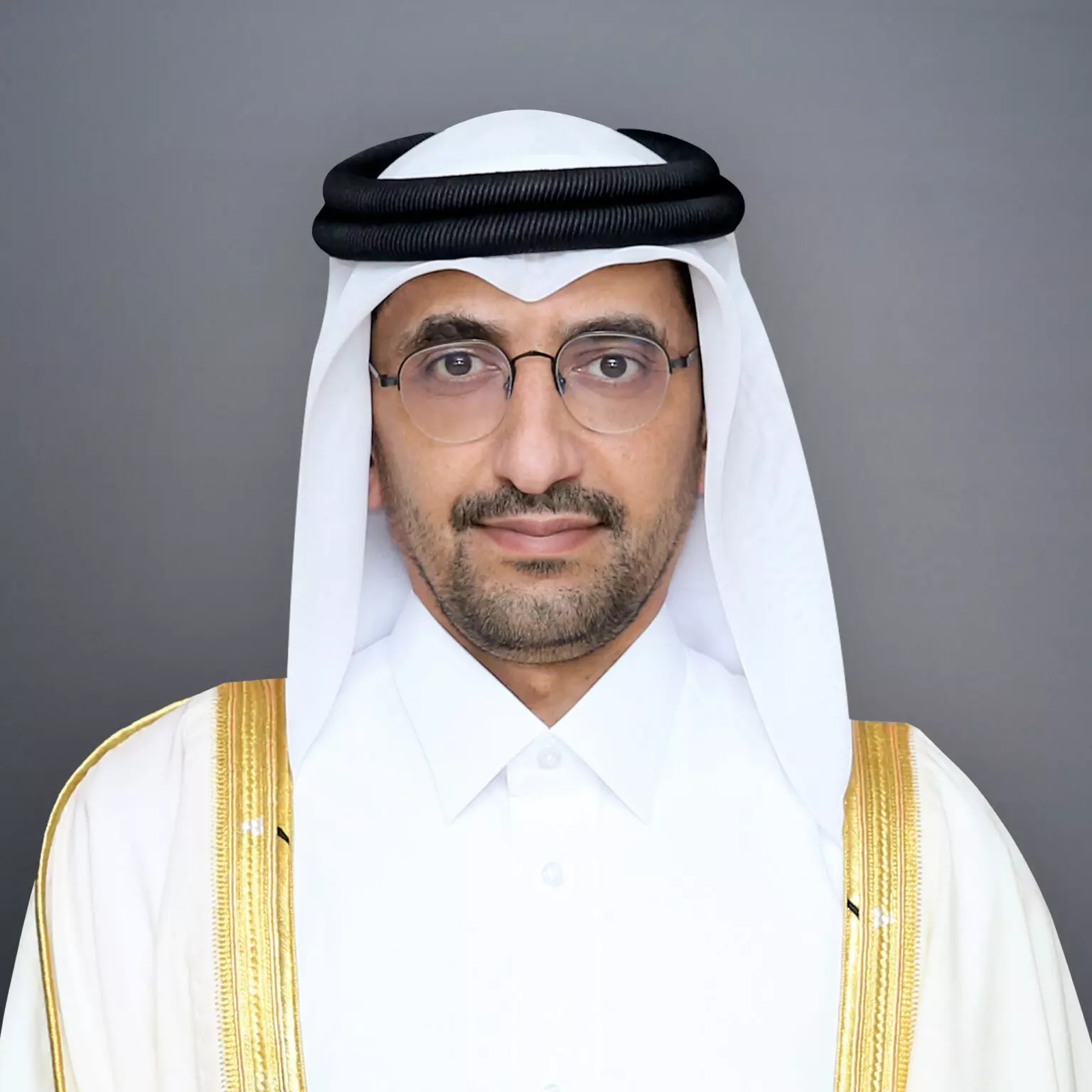
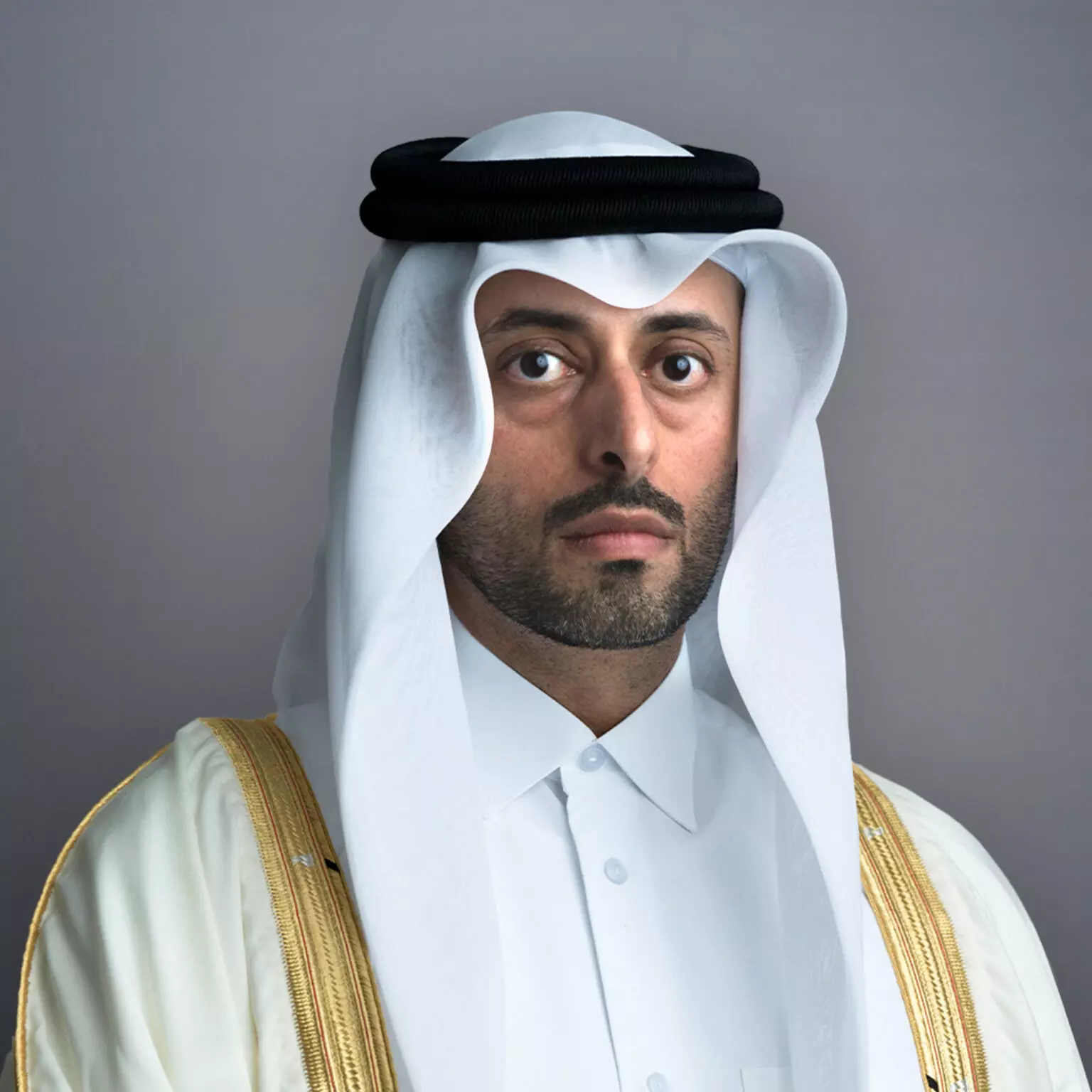
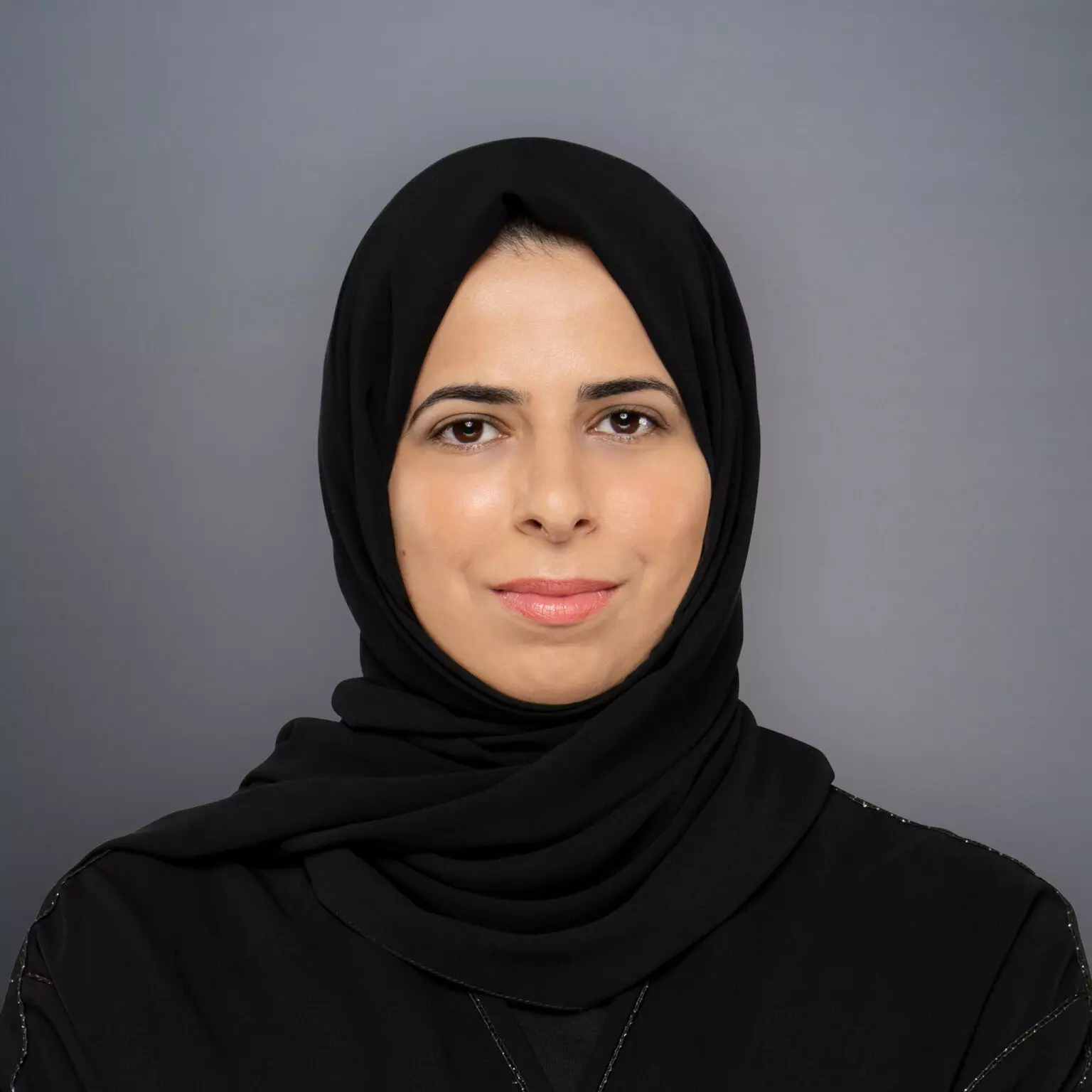
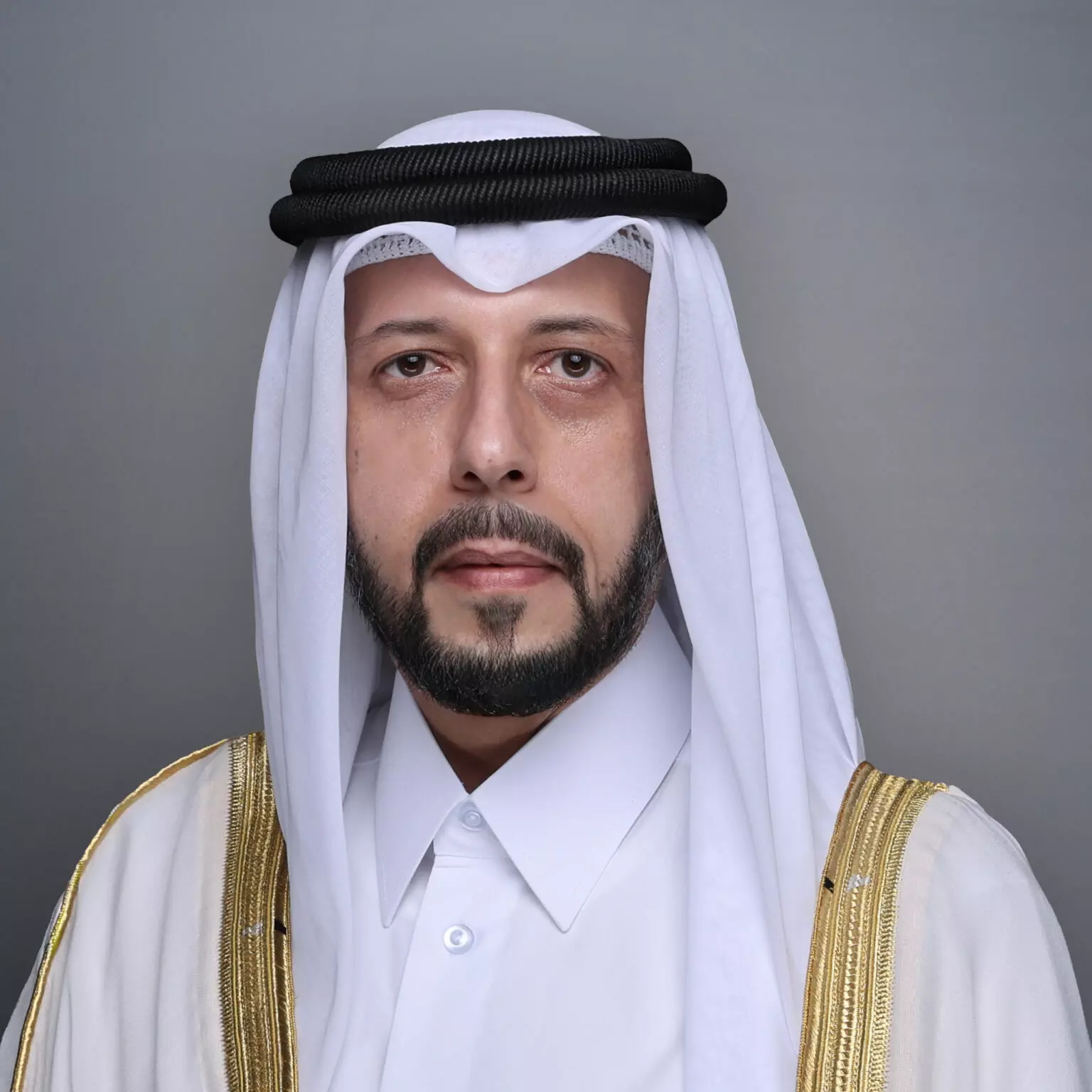
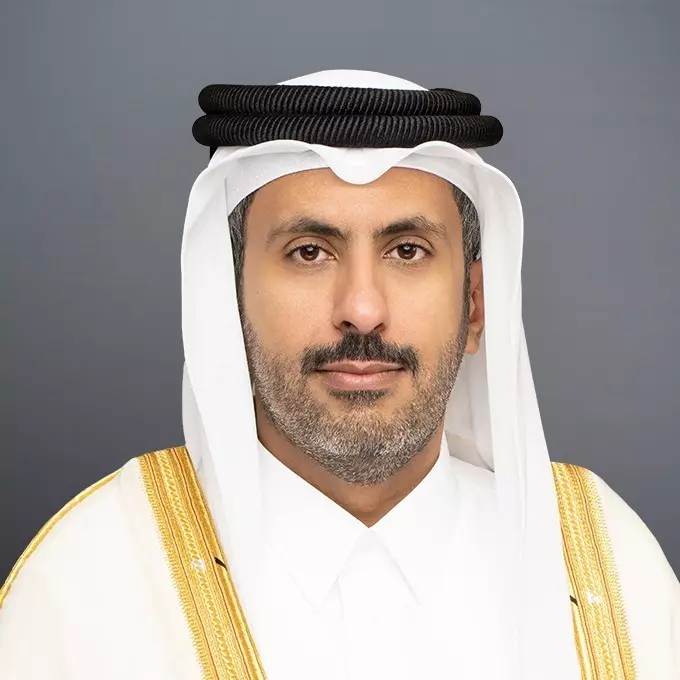
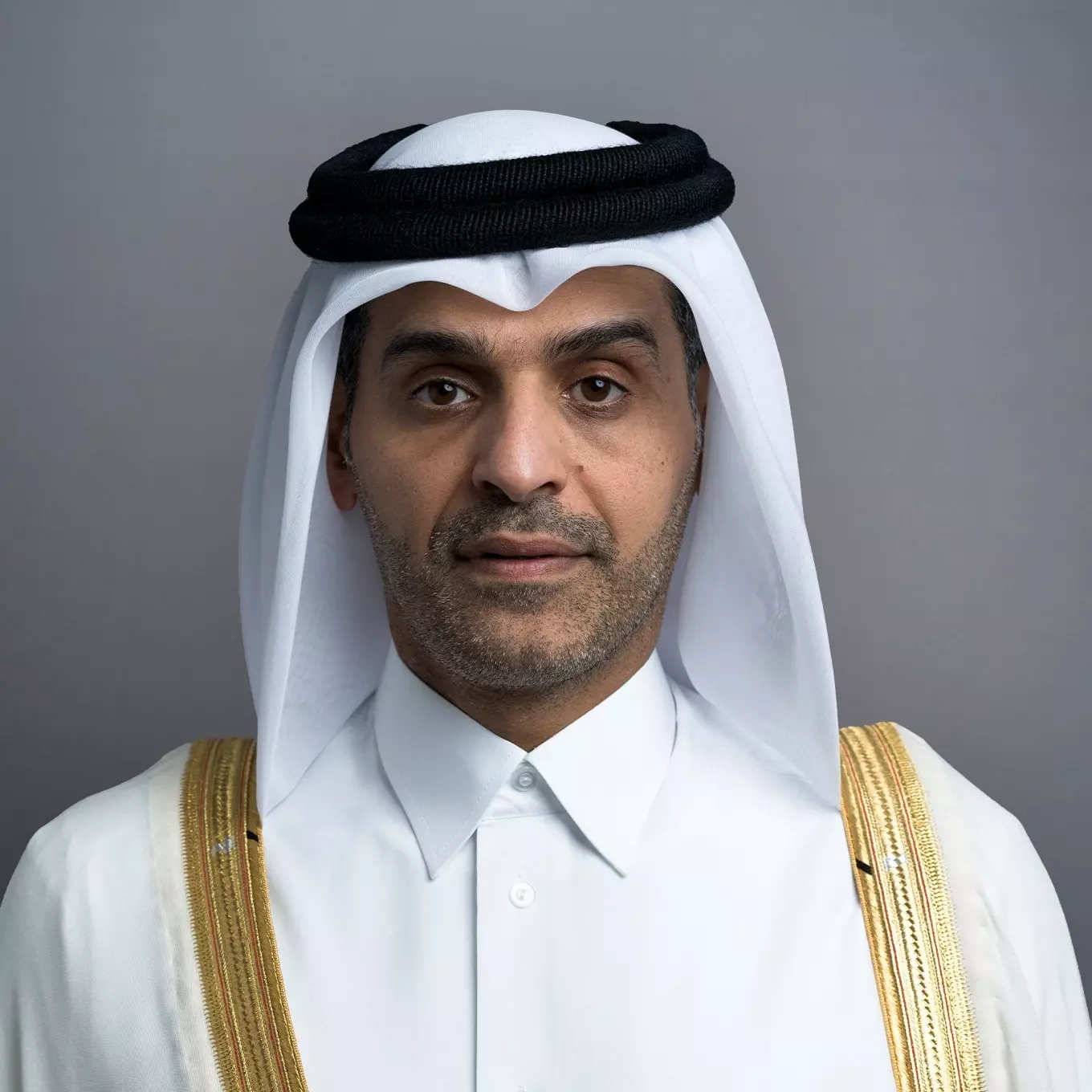

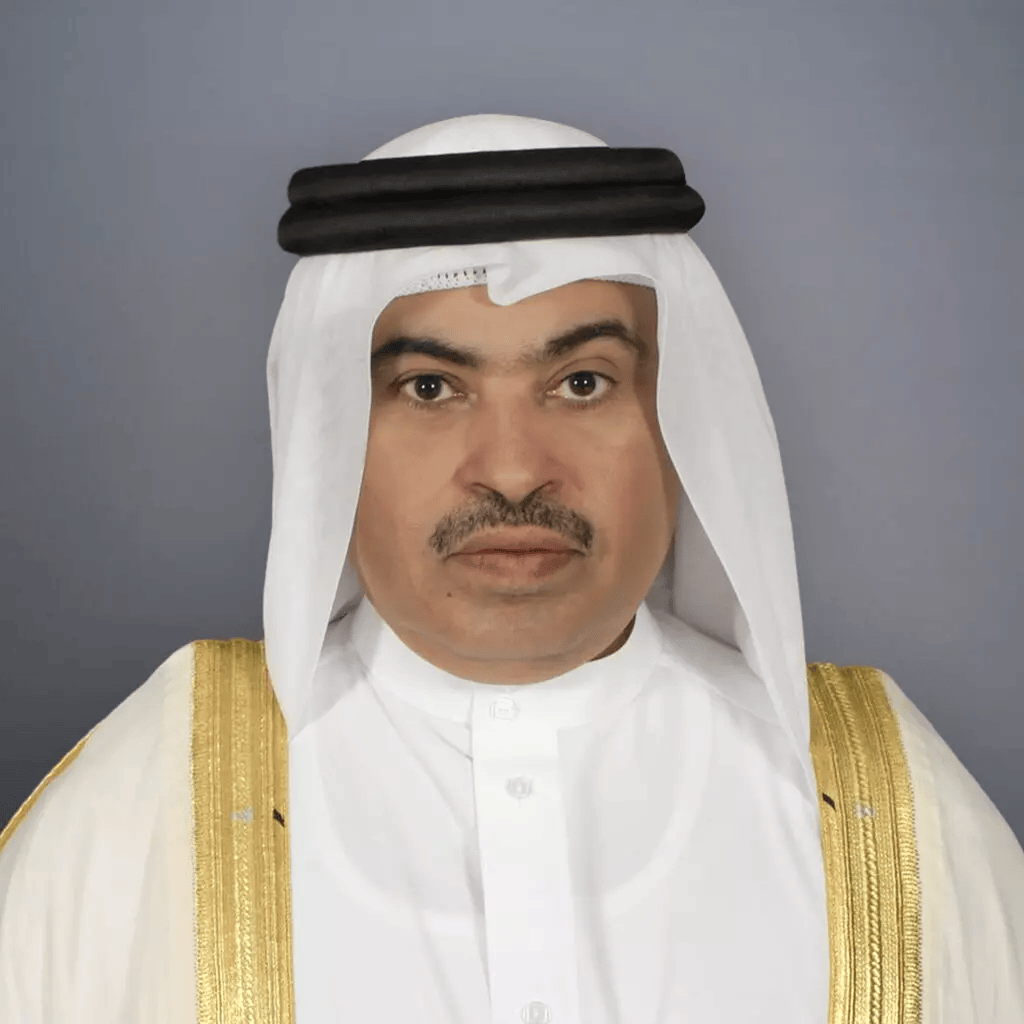
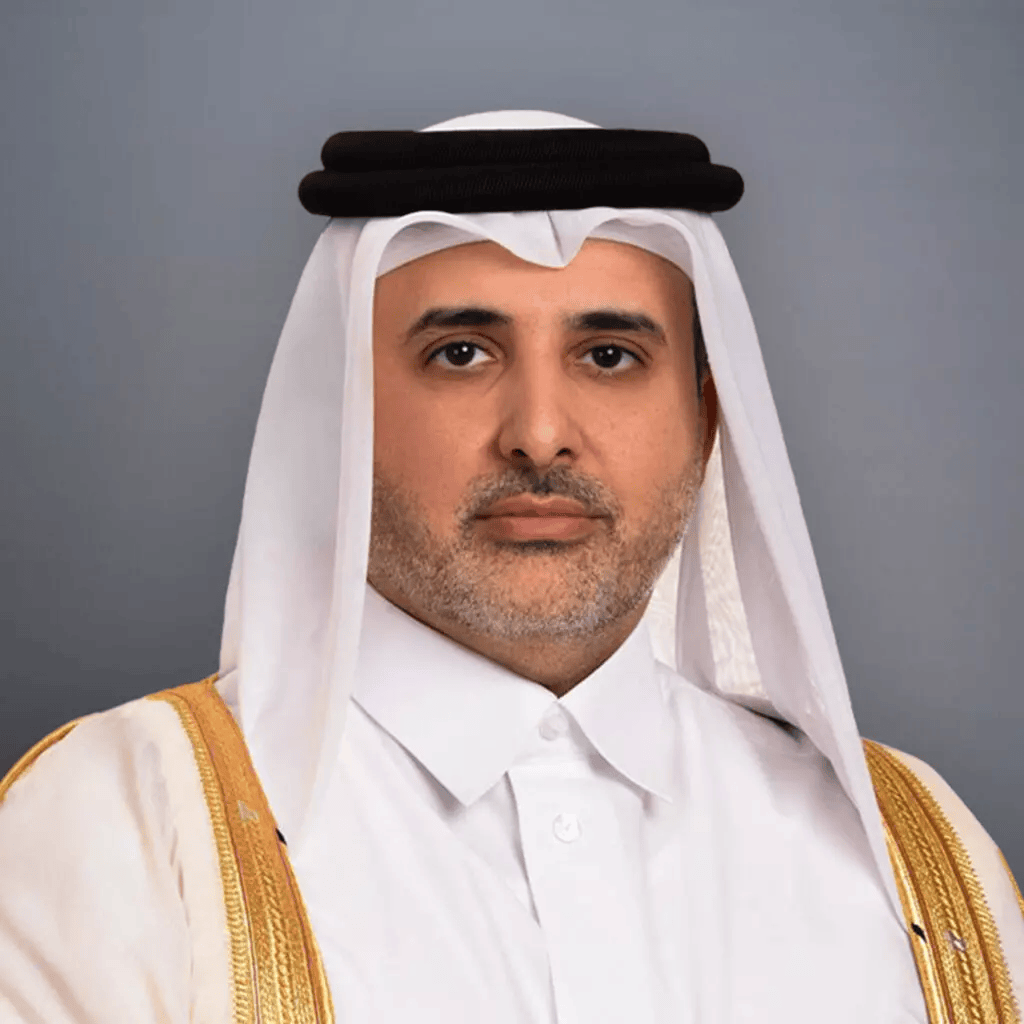
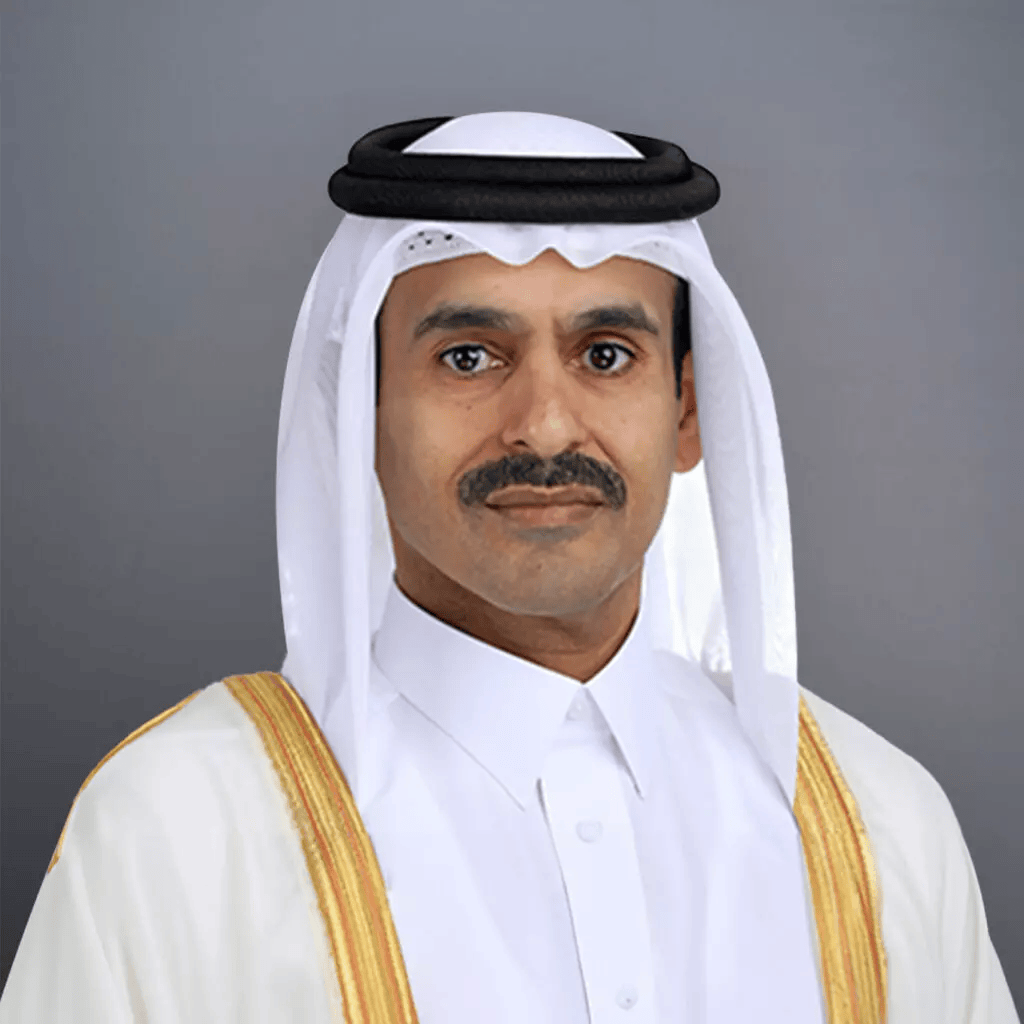
-and-islamic-affairs.png?sfvrsn=dd34ce8e_5)
